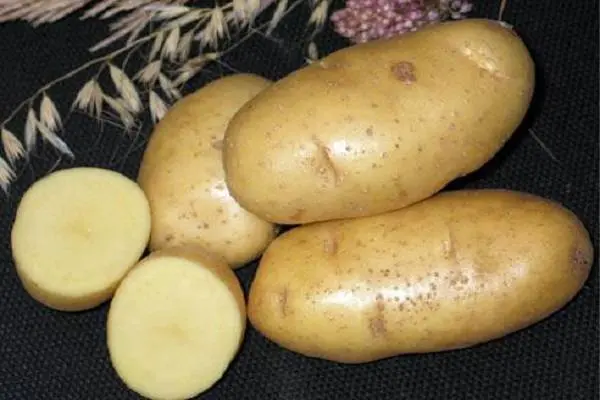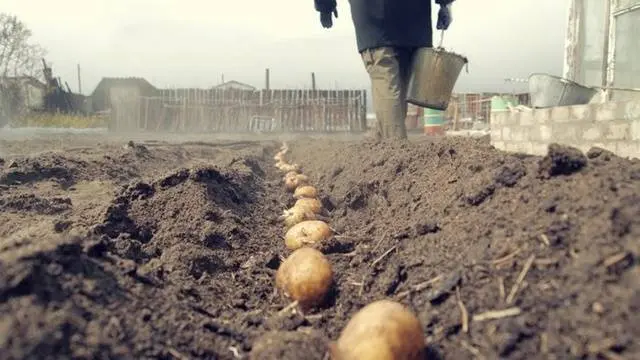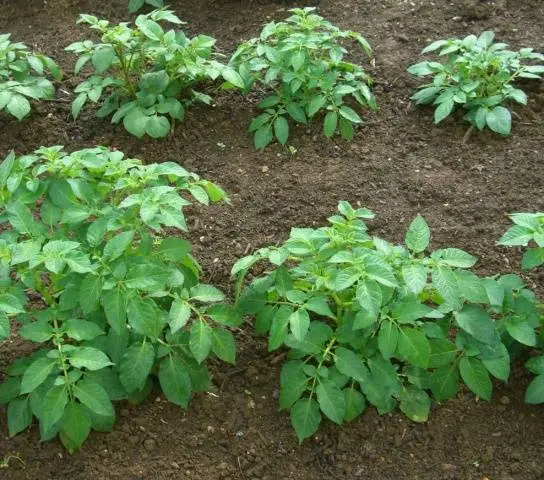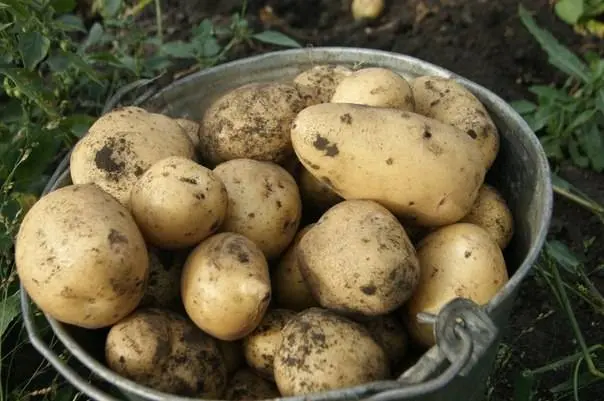Contents
Potato Charodey is a variety of domestic selection, adapted to conditions. It is distinguished by high quality tubers, good taste and long shelf life. Variety Charodey brings a high yield, subject to the rules of planting and caring for the crop.
History of origin
The Charodey potato was bred by the Federal State Budgetary Scientific Institution Leningrad Research Institute of Agriculture “Belogorka”. In 1996, an application was submitted to include the variety in the state register.
After testing in 2000, the Charodey potato was registered in the state register. It is recommended for cultivation in the Northern and North-Western regions, the Volga region, the Central Chernobyl region, the North Caucasus and the Far East.
Description and characteristics
Distinctive features of the variety Charodey:
- upright bushes;
- light green leaves of medium size;
- medium-sized corollas of white color;
- oval tubers with small eyes;
- white pulp;
- smooth yellow skin;
- weight from 73 to 116 g.
The taste of the Charodey potato is rated at a high level. Commodity qualities are comparable with reference grades. The starch content in tubers is from 12,4 to 15%. Taste qualities are rated at a high level.
Variety Charodey has a high keeping quality. Yield varies by region. In the Volga region, from 1 to 175 centners / ha are harvested from 270 hectare. For the Northern region, this figure is 370 c/ha. Up to 15 tubers are obtained from one bush.

Advantages and disadvantages
The pros and cons of the Wizard potato are shown in the table:
Advantages | Disadvantages |
|
|
Landing
Potato Charodey grows best in light soils: sandy, loamy, sandy, black earth. In clay soil, the culture develops slowly and is prone to fungal diseases.
The soil for potatoes is prepared in the fall. The beds are dug up, weeds and remnants of previous crops are eliminated. Humus and wood ash are added from fertilizers.
Healthy tubers with a mass of 70 to 100 g are selected for planting. Planting material is evaluated visually and tubers with signs of decay, cracks and other defects are rejected.
Potatoes of the Charodey variety are kept in the basement or cellar in winter. A month before planting, the tubers are transferred to the light and kept at a temperature of 15 degrees. For planting, choose potatoes with sprouts up to 15 mm long, which are treated with Epin’s solution to stimulate growth.
Potatoes Charodey are planted in furrows or holes. In sandy soil, the tubers are buried by 10 cm, in clay soil – by 5 cm. 30-40 cm should remain between the bushes. Rows are placed in increments of 70-80 cm.

Care
To obtain a high yield, the Charodey variety is provided with good care. Before germination, the soil is loosened so that the tubers receive more oxygen. Weeds are periodically weeded.
When shoots appear, you need to loosen the earth between the rows. Loosening after watering and rains is especially important, which avoids the formation of a crust.
Variety Charodey is not watered until the buds appear. When flowering begins, the soil is constantly moistened. When the soil dries out by 7 cm, start watering.
Potato plantings are watered with warm water in the evening. Each bush requires 2-3 liters of water. In drought, the field is watered more often, up to 3-5 times during the season.
Hilling and top dressing
An obligatory step in the care of potatoes Charodey is hilling. The procedure is carried out twice per season: when the bushes reach a height of 15 cm and before flowering. As a result, the formation of new root shoots is activated, the soil is saturated with oxygen and weeds are destroyed.
Hilling is carried out after watering or rain. The earth is raked from row spacing to potato bushes. To do this, use a pitchfork or special equipment.
Fertilizing potatoes helps to increase productivity:
- with active growth of tops;
- during the formation of buds;
- during the flowering period.
The first top dressing is necessary for the Charodey variety with a slow development of bushes. Useful substances are necessary for plants with thin stems and pale leaves.
For processing, a solution based on slurry is prepared, which saturates the plants with nitrogen. It is also allowed to water the potatoes with a solution of urea in the amount of 1 tsp. to a bucket of water.
The second treatment requires a solution consisting of 1 cup of wood ash and 1 tbsp. l. potassium sulfate. Fertilizer improves the taste of potatoes and promotes abundant flowering.
The third top dressing of the Charodey variety is carried out using 1 tbsp. l. superphosphate per 10 liters of water. Processing stimulates the formation of tubers. 0,5 l of the resulting solution is poured under each bush.

Diseases and pests
The cause of potato diseases is fungal spores, viruses and a lack of nutrients. The greatest danger to plants is viral diseases (mosaic, leaf curl), which are spread with poor-quality planting material and insects.
The most common fungal disease of potatoes is late blight. The lesion appears as dark spots on leaves and tubers. To protect plantings from phytophthora, agricultural practices are observed and sprayed with Bordeaux liquid, copper oxychloride, and a solution of Ridomil.
Spraying Karate, Arrivo, Sumi-Alpha helps against the Colorado potato beetle. The treatment is performed when the larvae appear and is repeated after 10 days.
The nematode is a representative of worms that damages tubers and tops of potatoes. The pest penetrates the soil along with planting material and garden tools. Effective methods for controlling the nematode have not been developed, therefore, increased attention is paid to the selection of tubers for planting and subsequent care.
Harvesting
Charodey potatoes are harvested at mid-early time. The tubers are harvested 65-80 days after germination.
If the tops of the bushes withered, they start harvesting within 3 weeks. After a long stay in the ground, the tubers lose weight and are stored worse.
2 weeks before harvesting, it is recommended to mow the tops, leaving about 10 cm above the ground, and remove them from the site. In summer, bushes attract pathogens and pests. Tubers are dug up in warm, dry weather at a temperature of 10-17 degrees.

The tubers are left on the field until the end of harvesting to dry. Dug up potatoes are kept in a dark, dry place for 2 weeks. During this period, the peel of the tubers will become harder. Then the potatoes are sorted and specimens with signs of disease or damage are rejected. Healthy tubers are stored in a cool dry place in winter.
Conclusion
Potato Charodey has high commercial and taste qualities. The key to a good harvest is regular potato care: hilling, fertilizing and watering. To protect plantings from diseases and pests, preventive treatments are carried out. Variety Charodey is suitable for cultivation in most regions of Our Country.









